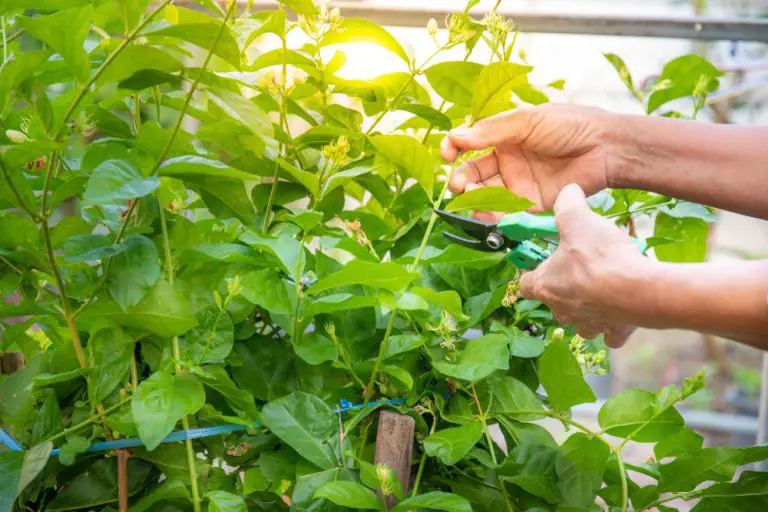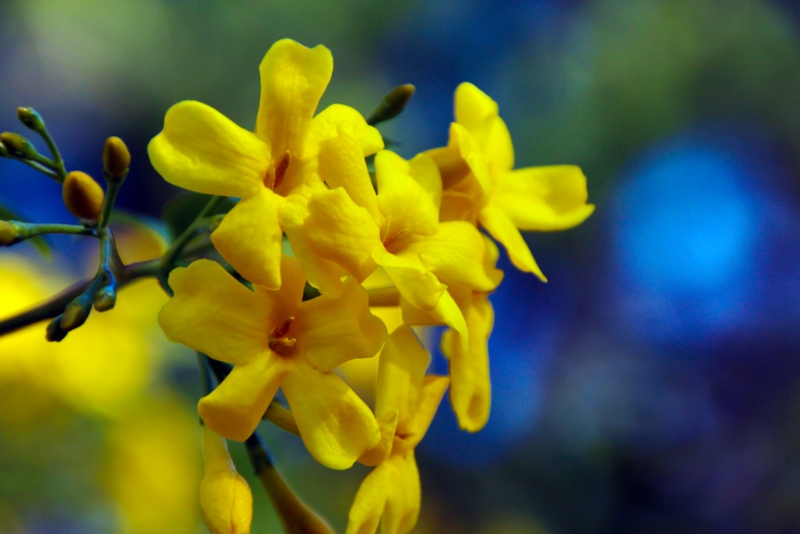Jasmine Crockett Have Children: Exploring The Name's Connection To Growth And Family
The name Jasmine, with its gentle sound and beautiful imagery, often brings to mind thoughts of delicate flowers and a sweet, captivating scent. It's a name that carries a certain grace, isn't it? When we hear a name like Jasmine, especially when it belongs to a public figure, a natural curiosity often sparks within us. People frequently wonder about the personal lives of those in the public eye, and questions about family, perhaps about whether Jasmine Crockett has children, are quite common, you know.
This widespread interest in personal details, particularly around family matters, is very much a part of how we connect with public personalities. It's a way, in some respects, for us to feel a bit closer to them, to understand the person behind the public image. The name Jasmine itself, as a matter of fact, holds a truly lovely origin story, stemming from the Persian word 'Yasmin,' which beautifully translates to "God's gift."
Thinking about this profound meaning, "God's gift," it's easy to see how the name Jasmine becomes deeply intertwined with ideas of new beginnings, of flourishing life, and of course, of family. This connection, actually, helps us explore the broader significance of a name that is so often linked to beauty and growth. So, let's take a closer look at the name Jasmine, its rich background, and how it subtly relates to the concept of family and nurturing new life, too it's almost a perfect fit.
Table of Contents
- The Allure of the Name Jasmine
- Understanding the Jasmine Plant: A Foundation
- The Name Jasmine: Origins and Meaning
- The Name Jasmine: Personal Details and Bio Data
- Is There a "Jasmine" in Your Family Story?
- Cultivating Growth: Metaphors for Family Life
- The Fragrance of New Beginnings
- Frequently Asked Questions About the Name Jasmine
- Bringing it All Together: The Enduring Charm of Jasmine
The Allure of the Name Jasmine
The name Jasmine has a special kind of appeal, doesn't it? It’s a name that many people find quite charming, and it often conjures up images of something truly lovely. Interestingly, while it's very popular in Western countries, especially since 1973 in the United States, it’s not always a name you hear very often among foreigners, but it’s rather commonly chosen by Chinese or other Asian girls, for example. This makes it feel a bit distinctive, you know, not at all what one might call "common" or "vulgar."
Our teachers, particularly one who was a very strict British gentleman, often expressed that this name was quite unique. He believed it wasn't a name foreigners used frequently, and that it seemed to be more popular among Asian girls. So, it really stands out, doesn't it? This distinctiveness adds to its overall charm and makes it a name that captures attention, whether it's heard in a classroom or in the public sphere, naturally.
When a name holds such a pleasant and unique character, it's only natural for people to be curious about the individuals who bear it. This curiosity extends to all aspects of their lives, including their personal journeys and family situations. The name Jasmine, with its gentle yet memorable quality, seems to invite this kind of thoughtful inquiry, pretty much universally.
Understanding the Jasmine Plant: A Foundation
To truly appreciate the name Jasmine, it helps to understand the plant it comes from, which is rather fascinating. Jasmine, the plant, can be either deciduous, meaning it loses its leaves seasonally, or evergreen, keeping its foliage all year long. It also shows a lot of variety in how it grows, actually, appearing as erect, spreading, or climbing shrubs and vines. This versatility in its physical form is quite remarkable, you see.
The leaves of the jasmine plant are arranged in different ways; they can be opposite each other or alternate along the stem. Their formation varies too, being simple, trifoliate (with three leaflets), or pinnate (with multiple leaflets arranged along a central stem). The flowers themselves are typically quite small, usually around 2.5 centimeters (or about 0.98 inches) across. But what they lack in size, they certainly make up for in other qualities, you know.
The common jasmine is a vining shrub, and it's particularly famous for its incredibly fragrant smell, which is really appealing to many. It produces beautiful clusters of three to five white flowers, typically from late summer into early fall. These plants are originally from tropical and some temperate areas of the Old World, and several types are cultivated purely for their ornamental beauty, offering a lovely sight and scent in gardens and homes, as a matter of fact.
Learning how to grow and care for jasmine is something many people enjoy. It's a perennial vine or shrub that's truly beloved for its sweet scent. There are over 200 species of these plants, and they're all part of the Oleaceae family. Jasmine is renowned for its intoxicating fragrance and ornamental beauty, making it a standout in gardens, homes, and even perfumes, which is quite impressive, isn't it? Understanding the plant gives us a richer appreciation for the name itself, basically.
The Name Jasmine: Origins and Meaning
The name Jasmine, as we touched upon, has a truly beautiful story behind it, which is rather interesting. It comes from the Persian word 'Yasmin,' and its meaning is quite profound: "God's gift." This origin gives the name a deep sense of preciousness and blessing, don't you think? It's a name that carries a feeling of something special and divinely given, in a way.
This lovely meaning, coupled with the plant's characteristics, helps to shape the symbolism associated with the name. Jasmine, the flower, is known for being saintly and fragrant, possessing a unique charm. So, the name itself comes to symbolize purity, beauty, and a certain delightful essence, very much like the flower it represents, you know.
It's fascinating to see how popular the name Jasmine has become, especially in Western countries. The text tells us that it started gaining popularity for girls in the United States around 1973. This suggests a growing appreciation for its soft sound and meaningful background. The fact that it has multiple spellings further shows its widespread adoption and adaptability across different cultures, pretty much everywhere.
When you consider a name that means "God's gift," it naturally brings to mind thoughts of precious arrivals and new life. This inherent meaning of the name Jasmine subtly connects to the idea of children, who are often seen as gifts themselves. It's a lovely thought, isn't it, how a name can carry such a tender and hopeful connotation, particularly when we think about family, too it's almost perfect.
The Name Jasmine: Personal Details and Bio Data
When we talk about "Jasmine," it's worth exploring the name itself, as our reference text offers some intriguing insights into its identity and characteristics. This isn't about a specific person's biography, but rather the "bio data" of the name "Jasmine" as described, which is quite unique, you know.
| Aspect | Detail |
|---|---|
| Origin Language | Persian (Yasmin) |
| Meaning | "God's gift" |
| English Translation | Jasmine (茉莉) |
| Symbolism | Saintly, fragrant, unique charm, purity, beauty |
| Popularity in West | Popular, especially since 1973 in the US |
| Common Associations | Fragrant shrubs and vines, beautiful flowers, tea, soap |
| Pronunciation (English) | [ˈdʒæzmɪn], [ˈdʒæs-] |
| Other Forms/Related Words | Jessamine |
This table gives us a neat summary of the name's background, doesn't it? It highlights how deeply connected the name is to its botanical roots and its rich cultural meaning. The idea that it signifies "God's gift" really sets a lovely tone for anyone bearing the name, pretty much. It suggests a certain preciousness, don't you think?
The fact that it's become a widely cherished name, particularly for girls, speaks volumes about its enduring appeal. It's not just a name; it's a reflection of beauty, grace, and a subtle hint of the divine. This rich tapestry of meaning is what makes the name Jasmine so special, and perhaps why it continues to be chosen for new family members, too it's almost a tradition for some.
Is There a "Jasmine" in Your Family Story?
Considering the name Jasmine and its beautiful meaning, "God's gift," it's natural to think about how names connect to our own family stories. Many families choose names that carry special significance or hope for their children, and Jasmine certainly fits that description, doesn't it? The question of whether someone like Jasmine Crockett has children often arises because people are simply curious about the personal narratives behind public figures, you know.
While we can't speak to the specific family details of any individual named Jasmine, we can certainly explore the general idea. A name that means "God's gift" seems perfectly suited for a new life entering the world. It suggests a sense of blessing and joy that often accompanies the arrival of children into a family. This connection, actually, is quite universal, transcending specific individuals.
Every family has its own unique journey, and the decision to have children, or the blessing of children, is a deeply personal one. For someone named Jasmine, with such a symbolically rich name, the idea of nurturing new life aligns beautifully with the inherent meaning of their name. It's a lovely thought, isn't it, how a name can echo such profound life experiences, pretty much like a gentle melody.
So, whether it's Jasmine Crockett or any other person named Jasmine, the name itself carries this lovely, hopeful undertone about new life and precious additions. It's a reminder that every child is, in a way, a gift. And that's a sentiment that resonates deeply with many people, you know, across different backgrounds and beliefs, too it's almost a shared feeling.
Cultivating Growth: Metaphors for Family Life
The process of growing a jasmine plant offers some truly wonderful parallels to the experience of nurturing a family, which is rather insightful. Just as you learn everything you need to know to grow jasmine, a perennial vine or shrub beloved for its sweet scent, raising children involves a continuous learning curve, you know. You provide the right conditions, just like a gardener provides light, water, and soil, for growth and flourishing.
Our text mentions finding tips on light, water, soil, and common jasmine varieties, and learning how to care for jasmine plants with expert tips on watering, sunlight, pruning, and indoor care to keep blooms thriving all year long. These are very much like the careful attention and consistent effort required to help children grow and thrive. You provide nourishment, warmth, and guidance, shaping their development, basically.
Consider how the common jasmine produces clusters of three to five white flowers from late summer to early fall. This act of production, of creating new life and beauty, is a powerful metaphor for having children. Each new bloom, or each new child, represents a fresh beginning and the continuation of a family's story. It's a cycle of life and growth that is both delicate and incredibly strong, pretty much like the plant itself.

How to Propagate Jasmine for More Blooms and Fragrance Garden

10 Different Types of Jasmine Plants (Photos) - Garden Lovers Club (2025)
Jasmine | Description, Major Species, & Facts | Britannica (2025)